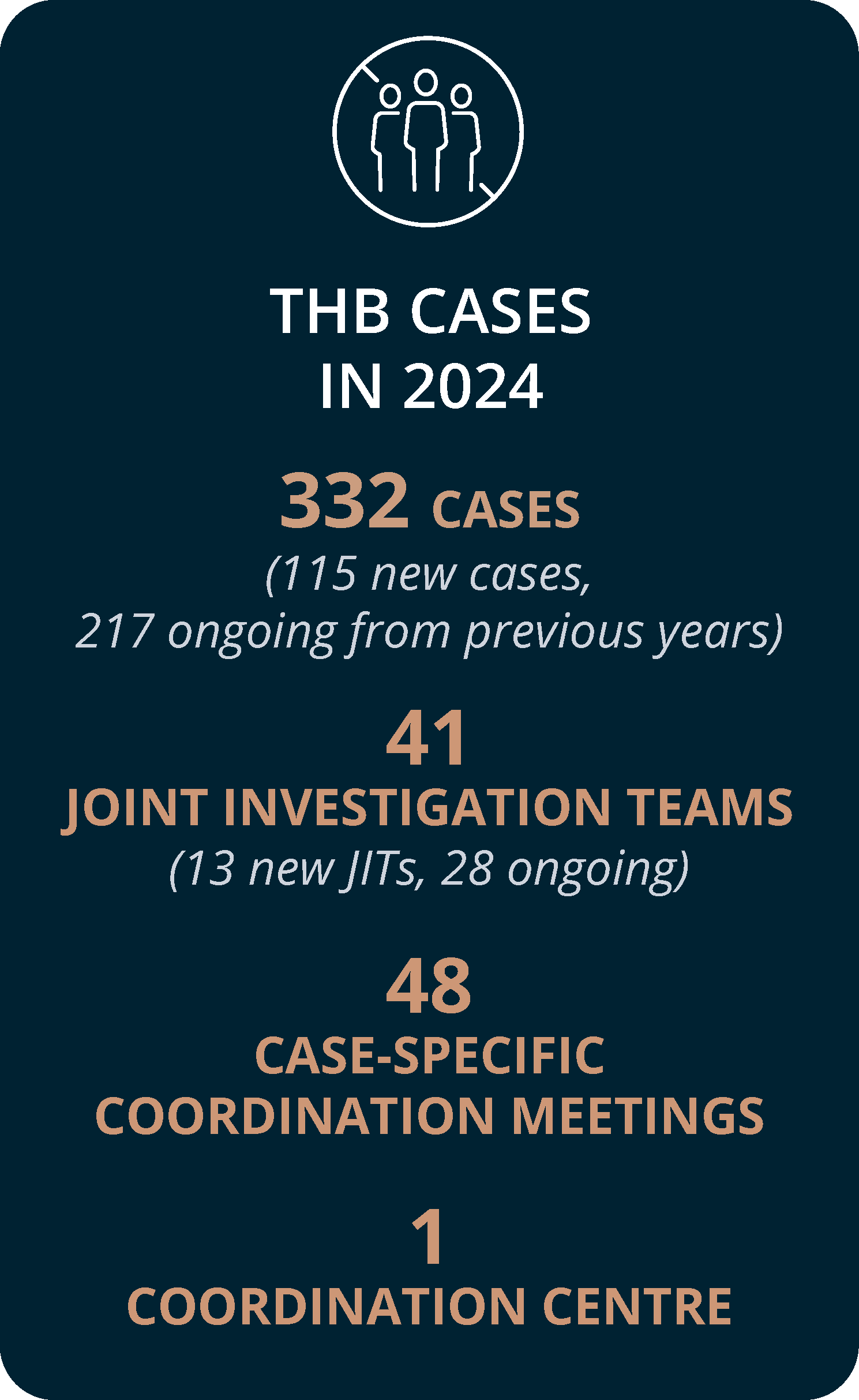Trafficking in human beings (THB) is a serious crime and a grave violation of fundamental rights. The war in Ukraine has further increased opportunities for traffickers to exploit vulnerable people fleeing the aggression. Trafficking for the purpose of sexual exploitation remains the most prevalent form of exploitation in the EU, while labour exploitation has increased in recent years but remains underreported.
Eurojust’s operational support to human trafficking cases

Eurojust continued to assist national judicial authorities with more than 300 cases in 2024. Roughly one third of the total number of cases handled were new cases referred to the Agency in 2024. Eurojust also supported a significant number of JITs in this area, 13 of which were newly opened in 2024. For the first time in three years, the number of THB cases and JITs supported by the Agency increased slightly compared to the previous year.
Romania opened the highest number of human trafficking cases in 2024, followed by Hungary and Belgium. Romania and Germany are the countries that were most frequently requested to participate in Eurojust’s cross-border THB cases in 2024. Switzerland was the third country that initiated the most human trafficking cases at the Agency in 2024, while the United Kingdom was the most frequently requested third country to contribute to international investigations in this area.
Strategic developments impacting Eurojust’s human trafficking casework
In 2024, the Eurojust THB Focus Group (established under the EU strategy on Combatting Trafficking in Human Beings (2021-2025) and co-implemented by the EU Anti-Trafficking Coordinator) continued to improve the criminal justice response to cross-border human trafficking cases. Members exchanged best practices on a range of topics, including monitoring online channels for suspected human trafficking, conducting investigations on social media platforms, technical and judicial aspects of using web crawlers, financial investigations in THB cases, human trafficking for forced criminality, THB for labour exploitation, and pimping and THB for sexual exploitation.
Illegal surrogacy as a form of exploitation was another key topic tackled by the Focus Group in 2024. Based on the Agency’s experience in working on cross-border illegal surrogacy cases, Eurojust has raised awareness of the relationship between international surrogacy arrangements and potential human trafficking (see key publication).
In the revised EU Anti-Trafficking Directive, updated in 2024, the definition of human trafficking offences has been extended to include the exploitation of surrogacy, as well as forced marriage and illegal adoption. Those who knowingly use services provided by victims of trafficking will be considered to have committed a criminal offence. The revised Directive introduces stricter criminalisation and provides stronger tools for public authorities to investigate and prosecute new forms of exploitation, including those taking place online, ensuring better support to victims.

